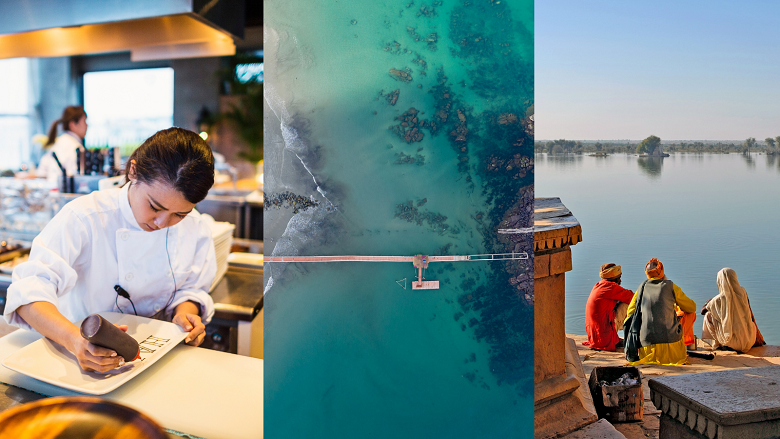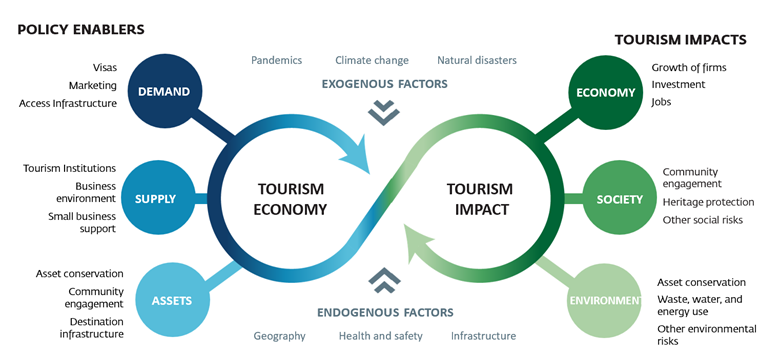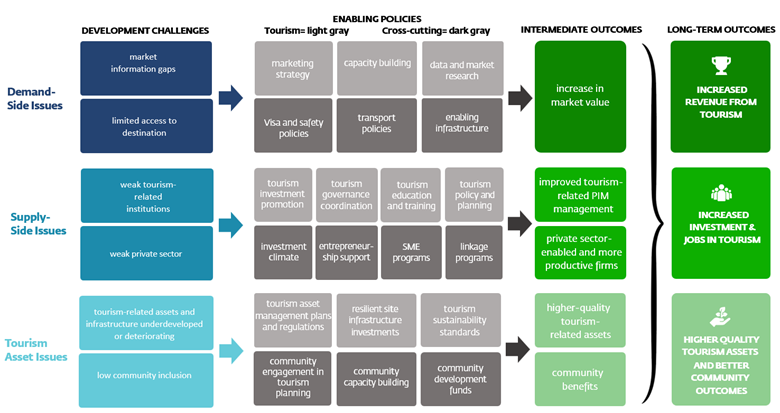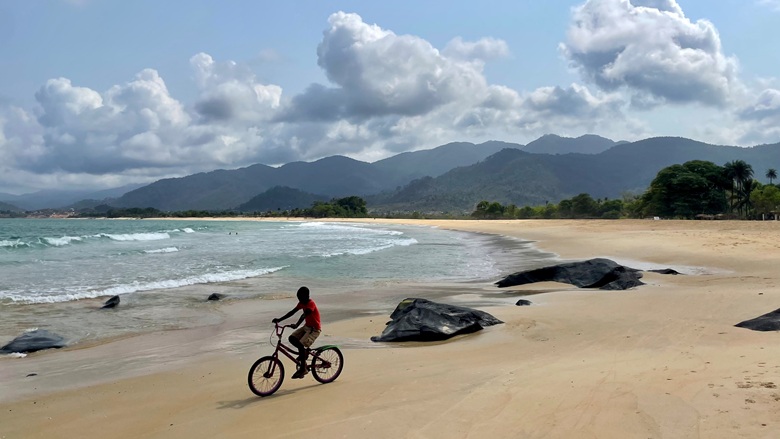The tourism sector provides opportunities for developing countries to create productive and inclusive jobs, grow innovative firms, finance the conservation of natural and cultural assets, and increase economic empowerment, especially for women, who comprise the majority of the tourism sector’s workforce (54 percent in 2020)
Why is the WB supporting sustainable tourism?
- Increase in revenues from tourism: foreign exchange, investment and fiscal revenues
- Stimulate MSME growth with spillovers and linkages to domestic sectors e.g. handicraft, retail, horticulture
- Improve social wellbeing of communities, women and disadvantaged groups
- Prevent environmental degradation from tourism and drive tourism revenue to preserve natural and cultural assets and adapt to climate change
- MORE AND BETTER JOBS & GROWTH
In 2024, tourism accounted for 10 percent of the global economy, contributing US$10.9 trillion to global GDP. The sector supported 357 million jobs worldwide, approximately one in every ten jobs, highlighting its central role in the labor market. International visitor spending also surged, reaching US$1.9 trillion.
Tourism has a long value chain and when effectively managed, jobs, value and positive impacts can be created at each linkage. Tourism can expand markets for existing and new products and services that directly impact the poor and isolated communities. If developed sustainably, the sector can also be a force for biodiversity conservation, heritage protection, and climate-friendly livelihoods, making up a key pillar of the blue/green economy.
The tourism value chain includes many sectors
Jobs, values and impacts are created along each step of the value chain
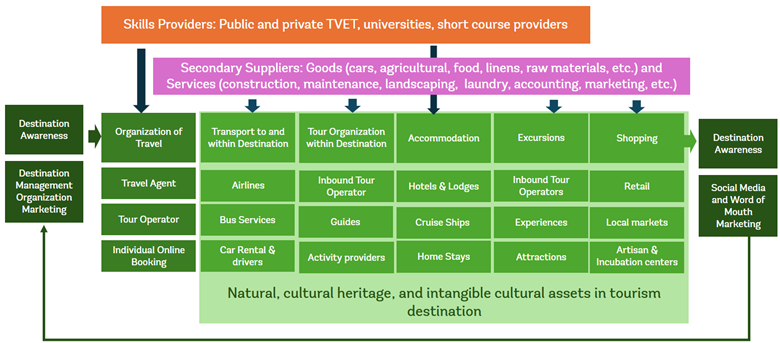
World Bank Tourism
However, realizing this potential requires thoughtful management and strategy. Not all types of tourism deliver the same jobs or economic opportunities; while some tourists spend heavily in local communities, others may spend little and burden local authorities to provide water, power, and waste management for an expanded seasonal population. The sector’s social and environmental risks must be mitigated to ensure tourism delivers sustainable and inclusive growth and maximizes its net-positive benefits.
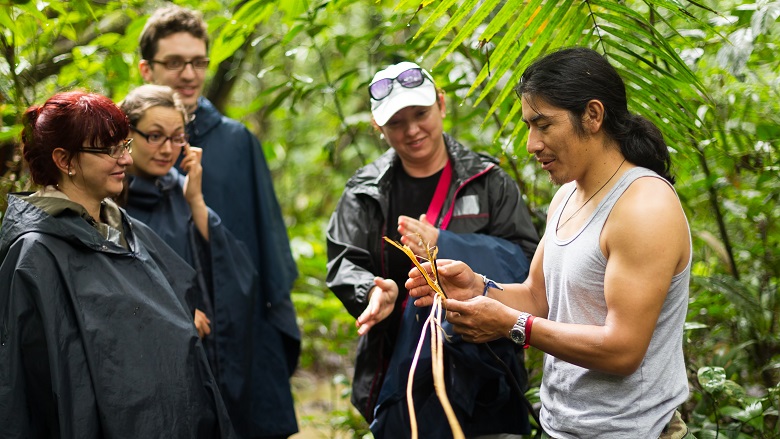
Naturalist local guide with group of tourist in Cuyabeno Wildlife Reserve Ecuador. Photo: Ammit Jack/Shutterstock
